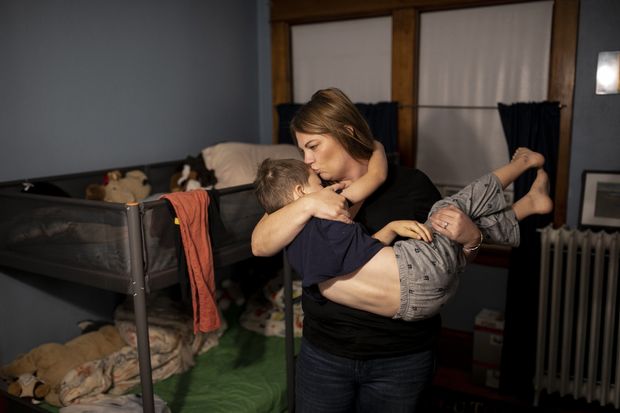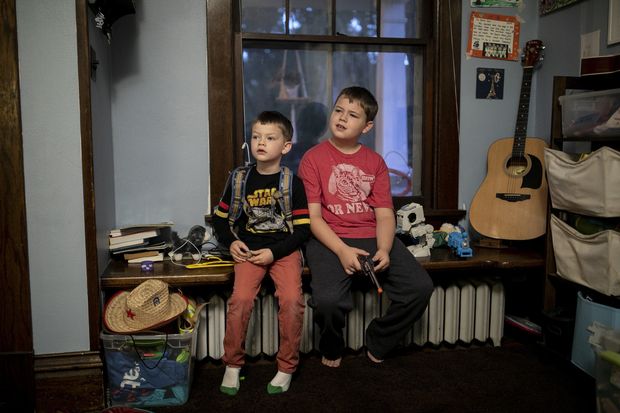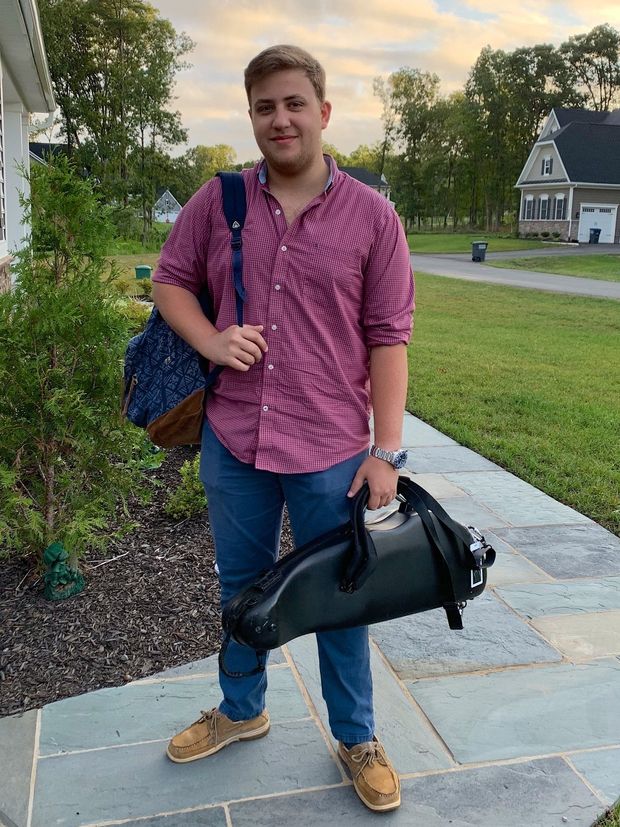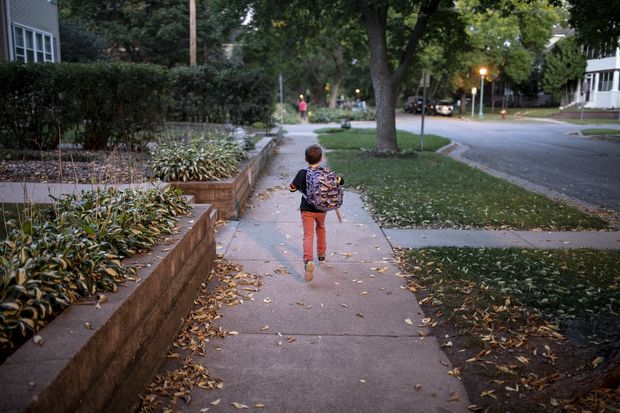
Middle-school student Maria Pekarsky wakes up by 5:30 a.m. for school, knowing her older teen brother and sister are still sound asleep with about another hour of shut-eye to go.
“When I’m about to leave home, they’re like finally starting to wake up,” said the 12-year-old in Fairfax County, Va., who gets dropped off at her bus stop because it’s too dark outside to walk. “I catch a bus at 6:30 a.m. The sun is rising!”
School districts across the country are flipping school start times, making younger students start earlier so teenagers can sleep longer. They cite research, including by the American Academy of Pediatrics in 2014, saying teenagers should start school no earlier than 8:30 a.m.
The moves are creating huge transportation and logistical challenges for school districts, which have to stagger arrival times to deploy limited bus fleets. It’s also causing upheaval at home. In some households, the change pits outraged younger kids against well-rested older ones. Parents remain sleep-deprived.

Fairfax County high school students have been getting up to an extra 50 minutes of sleep since 2015, when the district moved back the opening bell. For that, they have groggy youngsters to thank. Middle school, which includes grades seven and eight, starts up to 35 minutes earlier than before.
Twelve-year-old Maria’s school day begins at 7:30 a.m. That’s almost two hours earlier than last year, when she was in elementary school.
George Pekarsky, Maria’s 17-year-old brother, said he feels for his sister, but his empathy only goes so far. He likes the extra sleep.
“I usually leave the house around 7:15, when she’s probably arriving at school,” he said. When he was in 7th grade, like his sister, he started school at 8:10 a.m.
He said middle school students can handle the earlier start easier than high school students.
“They’re younger. They have more energy,” he said. “We have a bigger workload.”

In Seattle Public Schools in Washington, start times were pushed later three years ago by about an hour for most high schools and middle schools, while most elementary schools started 45 minutes earlier.
For elementary school students heading to the bus stop in the early morning dark, Seattle Public Schools hand out safety reflectors that snap onto their arms and ankles so drivers can see them.
Saint Paul Public Schools in Minnesota made the move to a later start time this month for high schools and middle schools, moving them back an hour to 8:30 a.m. That meant moving up the start time for most elementary schools by an hour, to 7:30 a.m.
The district says young learners take required classes such as math and reading in the morning, when they say research shows they learn best.

Some parents said their elementary children are getting up too early, especially if they catch the bus.
“I get my 5-year-old up at 6 a.m., and he cries and throws a fit and says, ‘Why are you doing this to me?’ ” said Saint Paul parent Lindsay Dukes. Her son’s bus arrives at 6:58 a.m.
“He’s going to bed at 8 p.m., but that might not be early enough,” she said.
Some studies say sleep-deprived teens have higher obesity rates, more absences, are at risk for drowsy driving and have attention problems that can hurt learning. Some advocates predict higher test scores and better academic performance from the moves, although the research is mixed.

In California, a bill on the governor’s desk would be the first to mandate later start times in an entire state. It would require that high schools start no earlier than 8:30 a.m. and middle schools no earlier than 8 a.m., beginning in 2022. Rural school districts would be exempt.
Once, the earliest elementary schools in Des Moines, Iowa started was at the civilized time of 8:15 a.m. Then Des Moines Public Schools changed the start times to 7:30 a.m.
Akil Clark, a bank consultant, helped lead a grassroots effort to get some relief. His wife had to adjust her work schedule to get their two elementary school-aged children to school by 7:30 a.m..
A compromise was struck: the district pushed the time back this school year to 7:45 a.m. But the Clarks still want that crucial time back in the morning, and would like to see school start no earlier than 8 a.m.
Share Your Thoughts
Math problem: Two children must get to school by 8 a.m. One is in high school. The other is in middle school. What time does the first alarm clock go off in the house, and which parent does it belong to? Join the conversation below.
Stella Pekarsky, the mother of Maria and George and four other children in Fairfax County, likes that her two teenagers get more time to sleep. An annual survey of Fairfax’s 10th and 12th graders by the school district and county shows a greater percentage sleeping at least eight hours.
“I don’t fight with my high schoolers to get up, and they’re enjoying the later time,” she said.
Mary Kay Downes, a Fairfax teacher and board member at the Association of Fairfax Professional Educators, questions if the later start times are paying off for high-school students. “They’re not any more well-rested, because they stay up later,” she said.
Some middle school students are getting less sleep, the survey shows, and Ms. Pekarsky sees that, too.
Fairfax officials acknowledge the start time isn’t good for middle school students and plan to discuss the matter in the spring.
“I fight with my middle schooler, and literally had to push her out of bed on the first day of school,” Ms. Pekarsky said. “It has been a disaster.”

Write to Tawnell D. Hobbs at Tawnell.Hobbs@wsj.com
Copyright ©2019 Dow Jones & Company, Inc. All Rights Reserved. 87990cbe856818d5eddac44c7b1cdeb8